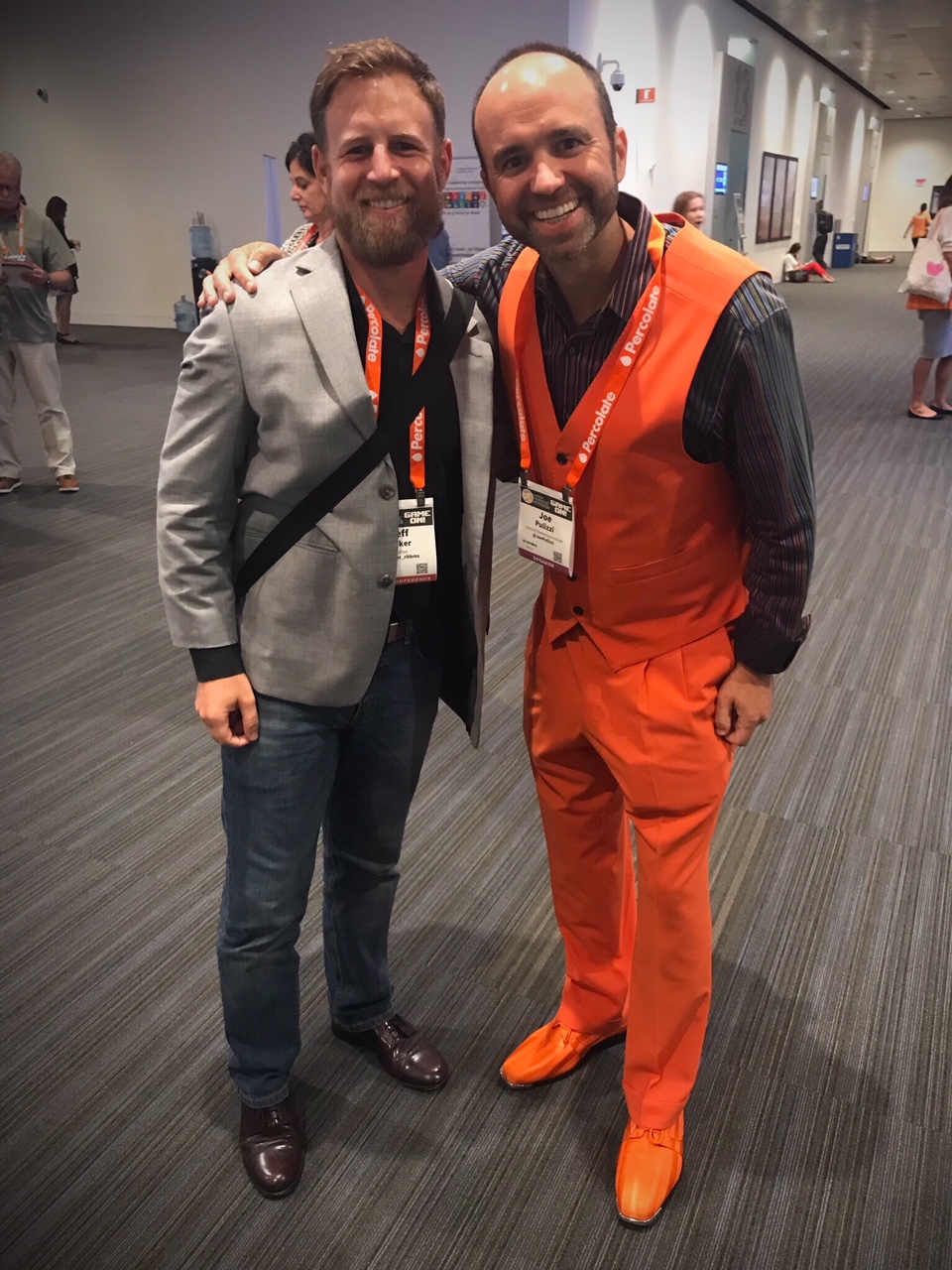There is a human capacity for how much orange a human being can process, and I found that threshold here at CMWorld today.
And was humbled by my lack of spirit.

Cheers to Joe for putting up with my fanboy compulsions.
So let’s get to the reason you came.
1. Your topics are too narrow.
It’s easy to fall into the trap of writing solely on topics related to your products and services. Intuitively, it makes sense, right? If you sell butt-shaping workout shoes, why would you write an article about tennis rackets?
Well, maybe because 75% of your shapely target audience are also tennis enthusiasts, and you have never written a single word about tennis.
And do you need to sell tennis rackets and headbands to be relevant to this goldmine of an audience? Hell No. You need to be an authority in what interests them. This can create an indirect line of revenue through brand affinity, and an entirely new channel that you hadn’t thought of.
What does that mean in English? A tennis enthusiast may find your awesome article (on tennis) and decide to buy butt-shaping workout shoes, because they are into that.
And it makes sense. How often were you convinced to buy something that you weren’t originally searching for? It happens every day when you’re checking out at the supermarket.
You create authority, then a need or desire where there wasn’t one previously.
Write peripheral content, and do it well.
Cheers to Nadya Khoja and Morgan Lehmann for rattling my cage. If you get narrow, you miss peripheral prospects.
2. You don’t create enough curiosity
Bash reality shows all you want, but you KNOW that you are on the edge of your seat for the final reveal at the end of every episode. Reality show editors are masters of building anticipation.
They do this for a reason; if the audience knows the entire story before they begin, they have no reason to hang around.
We want challenges. We want puzzles. We want closure.
Andrew Davis explained, in his uniquely animated way, that we fail by giving away the goods too early. He said we should “Show the audience something they desire and threaten it as much as possible.”
In other words, establish a goal for your protagonist, get your audience to buy into their story, then scare them with every scenario that may prevent that goal from being attained. Then finally, show the audience how they attained the goal (specifically with your product).
He specifically attacked case studies and testimonials, in which most of us are guilty of creating zero drama, while touting the awesomeness of our products.
People don’t want our products, they want a good story with a resolution to a problem.
What other reason would there be for 500,000 people to wait 40 minutes to see how many rubber bands will kill a watermelon?
Create anticipation and drama.
3. Do your own research
Citing someone else’s data may help prove your point, but it will never make you famous.
Morgan Lehmann at SurveyMonkey did some original research… on original research. She found:
- Content that contains data is 74% more trustworthy.
- Content with data is 73% more persuasive.
- 82% of people would rather read an article based on data than a person’s opinion.
Further to prove this point, 80% of marketing teams have already, or are planning to publish original research.
And, it’s extremely easy to do. You can create simple surveys with SurveyMonkey and distribute to your clients, subscribers, friends, or you can use their Audience product for an extra boost.
Humans love data, especially NEW data. Go with it.
TL;DR,
For my fellow friends with ADD, the takeaways are as follows:
- Write peripheral content. It’s likely that you will capture more customers by being experts in topics that are important to them, rather than the topics you WANT to be important to them.
- Build anticipation with your content. Think reality shows; the more anticipation you build, the longer your audience will hang around.
- Do original research. Do you want to be the 117th person to quote someone else’s work, or do you want to be the person who gets quoted 117 times?
More details to be discussed on next week’s version of Above the Fold.





